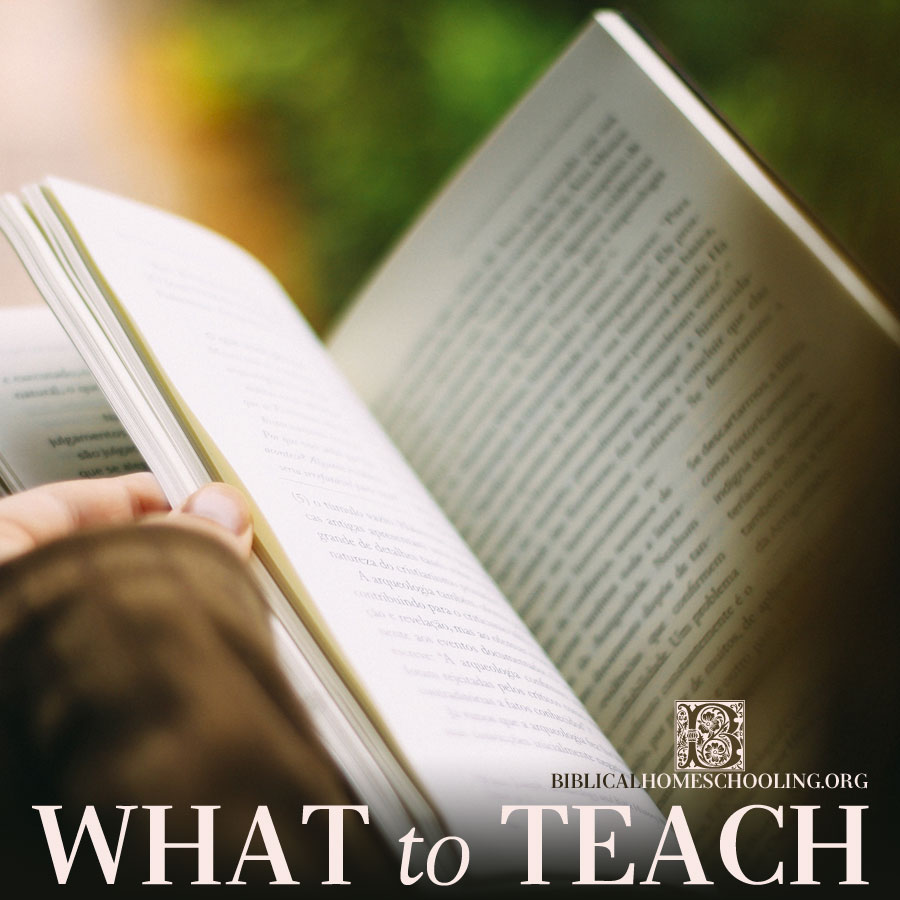What to teach | When to teach | How to teach
I believe in teaching foundations thoroughly: spending maximum time on a few necessary subjects that are designed to instill a love of learning, and create life-long independent learners, by unlocking the power of the child’s mind. This is what classical educators call the lost tools of learning of grammar, dialectic, and rhetoric, but what the Bible terms knowledge, understanding, and wisdom.
Why so few subjects? We are staying focused on the goal of education, which is to give the mind its power to think, and to think rightly. The goal is to impart the tools of learning, so that the student, armed with the power of his mind, can then go on and learn for himself any subject which interests him or is needful for him. This goal is not achieved by a glut of subjects; in fact, a glut of subjects will hinder the goal. But only a few things are needful. (And do not neglect the heart which loves virtue, without which all academic learning is futile).
The tools of learning are not imparted by teaching lessons on the tools of learning. They are imparted by teaching these few subjects in their progressions. The tools of learning automatically develop and grow, given the appropriate material on which the mind practices and exercises.
Those few subjects are:
Bible
Language
History / Western Civilization
Mathematics
These few are like the legs of a table, or the foundational pillars of a house, which provides the solid and stable support for all that will be built upon it in the future. If one of these is taken away, the structure collapses, as we will see. Why these few?
Why Bible? It is the heart of learning: knowledge, understanding, and wisdom.
Why Language? It is the medium in which learning takes place.
Why History / Western Civilization? It is His Story which passes His culture to the next generation.
Why Mathematics? It teaches the discipline of true associations and applications.
Resources for additional subjects as electives or for independent study (coming soon …)

2 thoughts on “WHAT TO TEACH”
I love this approach. I long for simplicity in our homeschooling. How would you approach science in order to keep it simple since our state requires it?
One option is nature study. You often don’t have to go much farther than your own backyard! Examine the local plants, trees and animals, the climate (and myth of “climate change”/”global warming”), and insects.